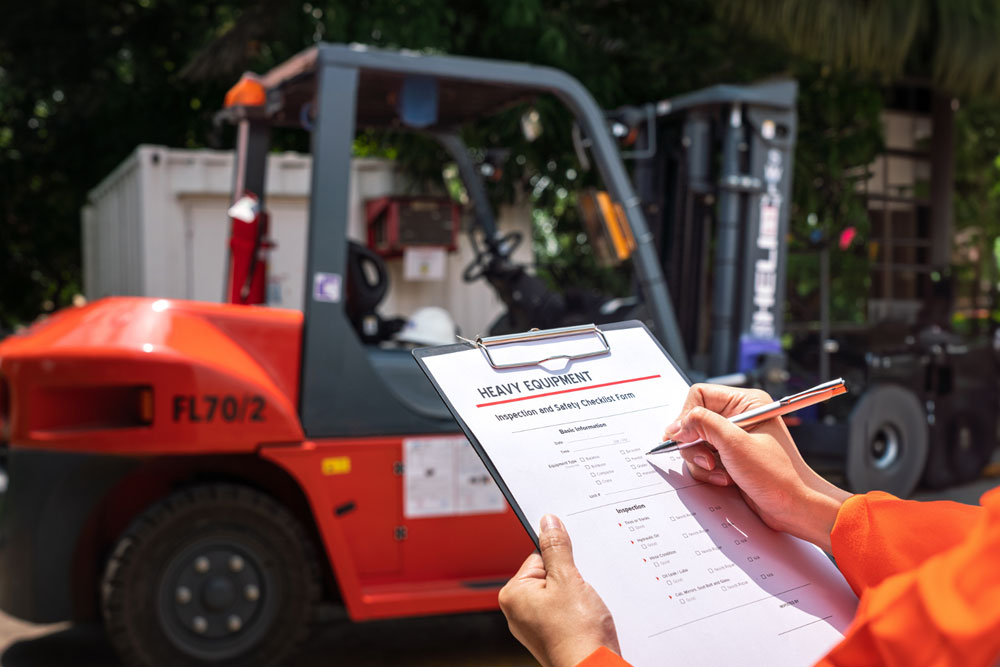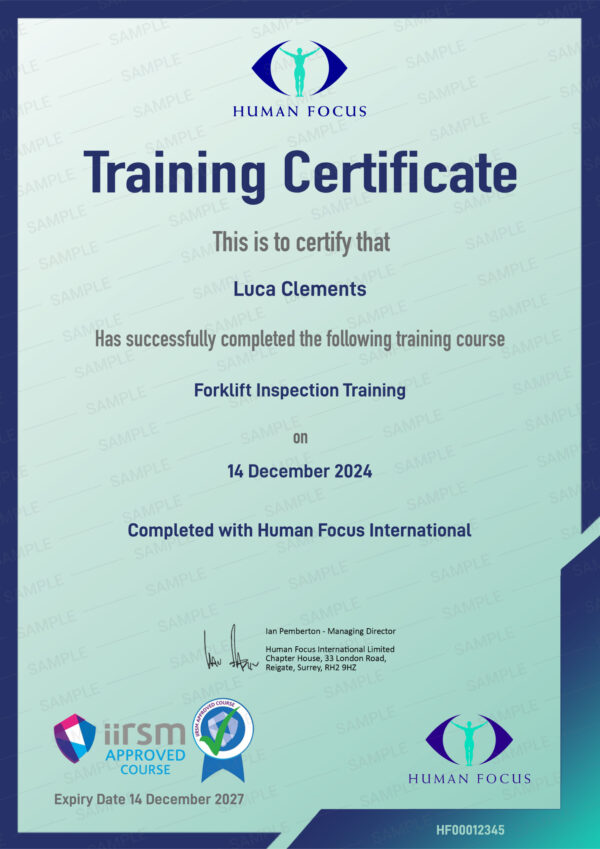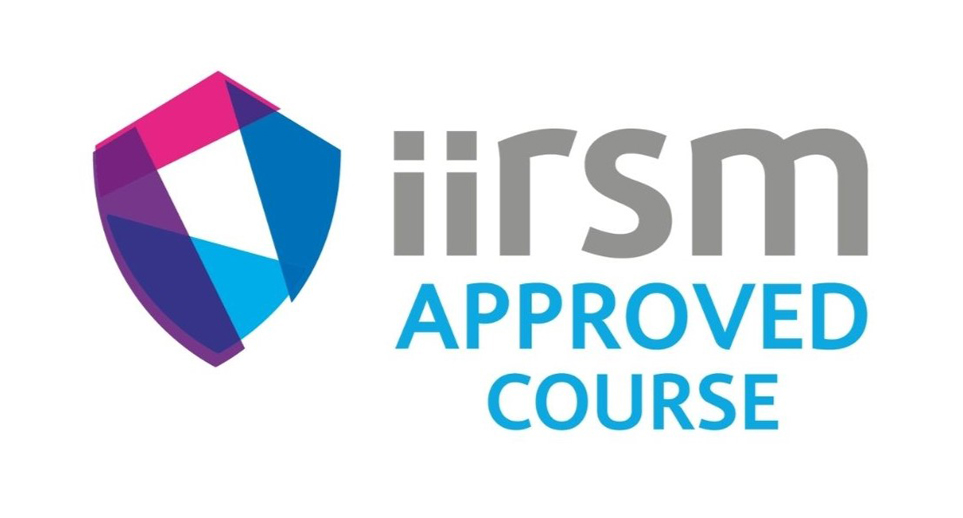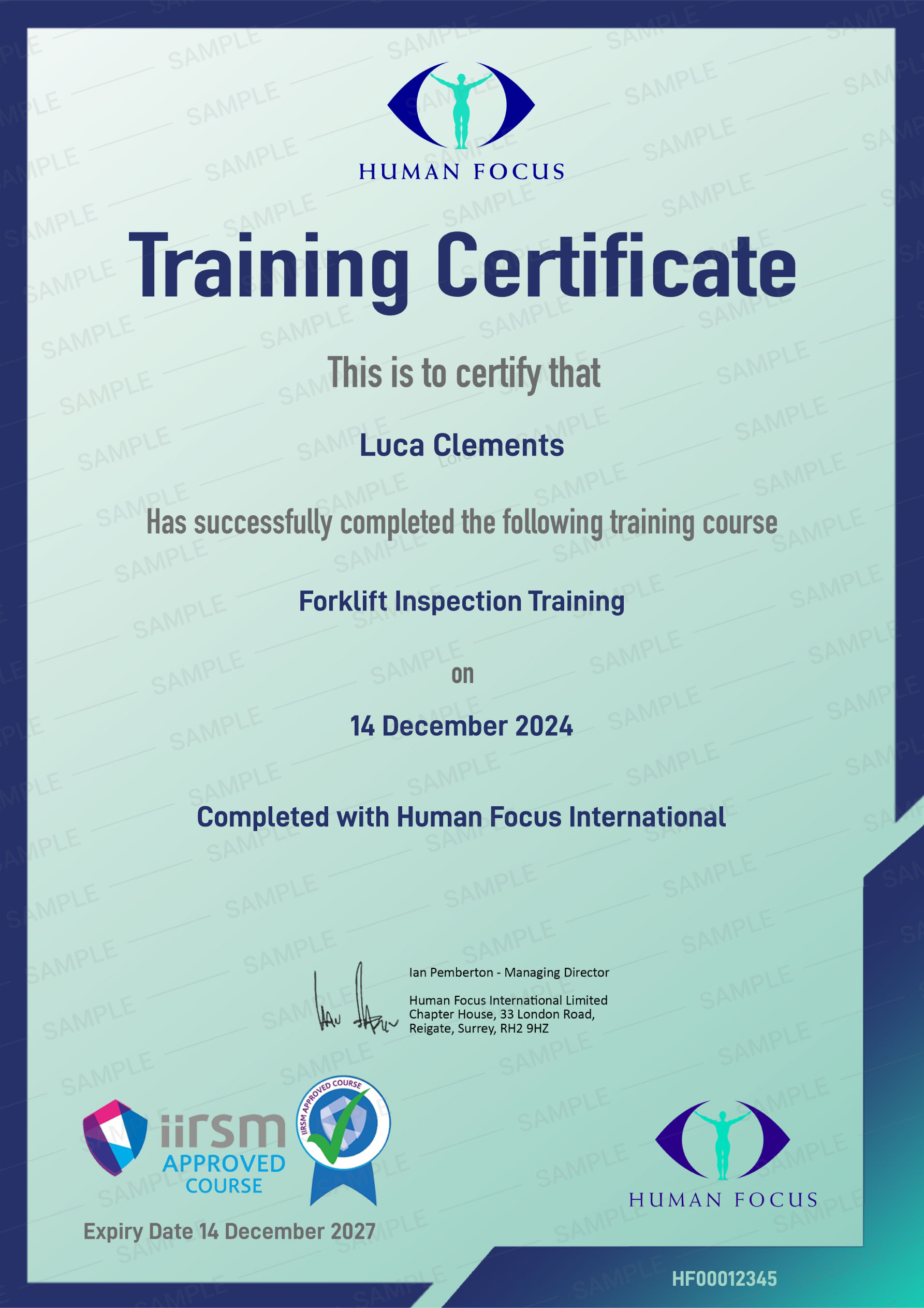Forklifts issues such as worn-out tyres, faulty brakes, damaged forks and malfunctioning hydraulic systems can lead to serious accidents if not identified and addressed promptly.
To prevent such incidents, organisations that operate forklifts are legally required to ensure systems of inspection are in place for this equipment. This includes pre-use inspections each time the forklift is used and regular recorded inspections, alongside thorough examinations and testing that must occur every six to 12 months.
Operators and supervisors must understand their role in the inspection process. This includes knowing how to accurately conduct these pre-use and regular inspections, ensuring they are recorded to demonstrate compliance. As well as supporting thorough examinations by reporting any faults that require an engineer to review.
This forklift truck inspection training provides trainees with the skills to conduct effective inspections and identify faults in equipment. The course helps ensure forklifts are inspected according to LOLER requirements and are safe for operation, protecting workers and the business from the risk of accidents and legal liabilities.
Are You Aware of Your Responsibilities?
As an employer, you must ensure all forklift operators and supervisors are adequately trained and that all equipment is regularly inspected and maintained in accordance with the Lifting Operations and Lifting Equipment Regulations 1998 (LOLER).
Employers’ key responsibilities under these regulations are to:
- Ensure inspections are conducted before each use
- Arrange for a thorough examination by a competent person at least once every 12 months
- Limit forklift use to their intended purpose and designed limits
- Provide adequate training to ensure operators are competent and safe
- Conduct risk assessments for all lifting operations involving forklifts
- Maintain forklifts in good working order and safe condition
- Ensure loads are stable, balanced, and secure during lifting and transport
- Plan and supervise all lifting operations
- Keep records of inspections, examinations, and maintenance
Failure to fulfil these duties can result in severe penalties, including fines and legal action.
This forklift truck inspection course supports employers in fulfilling these legal obligations by equipping personnel with skills to conduct effective forklift inspections in line with the LOLER requirements. This helps prevent accidents due to faulty equipment and protects the organisation against potential legal and financial repercussions.
About This Forklift Inspection Training Course
This course educates participants on the fundamentals of forklifts, associated hazards and relevant legal requirements. Users learn when and how to inspect a forklift, the correct procedures for documenting inspection findings and actions to take if any issues are identified.
By taking this course, users learn the full forklift inspection process, from identifying faults to documenting and reporting them.








